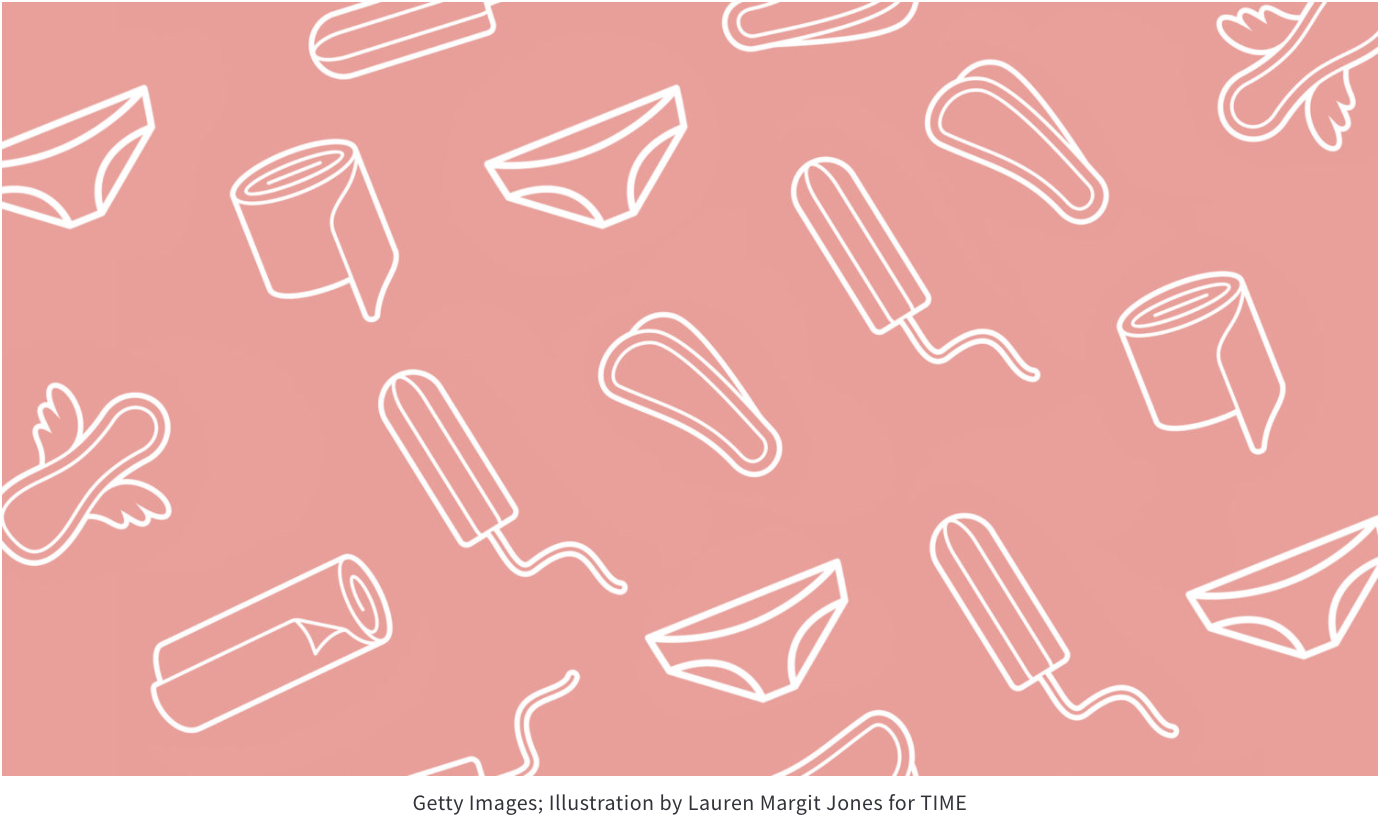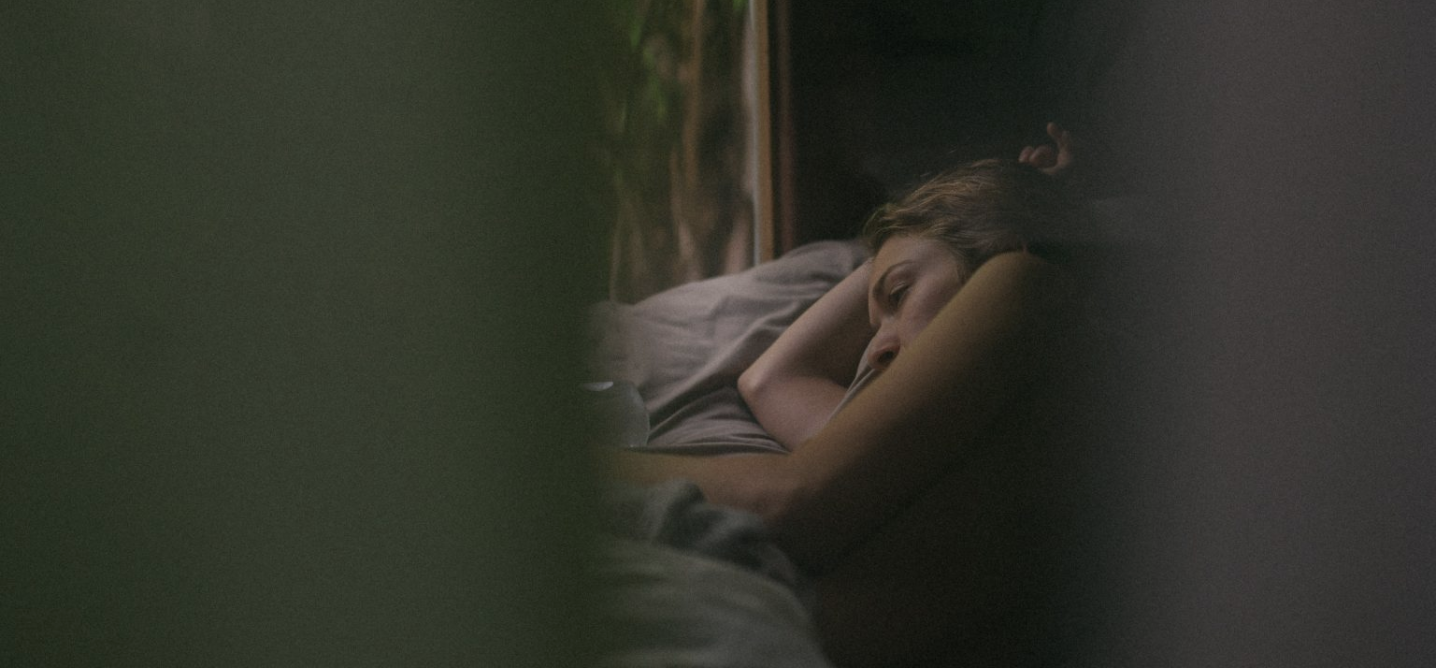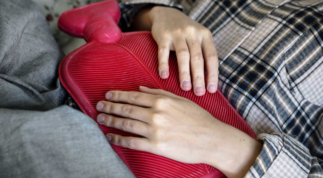Get Red-y: Improving Victoria’s Menstrual Education

Between putting condoms on bananas, bright red faces, and soaking tampons in glasses of water, how much do young Victorian menstruators really learn about their monthly cycle in school?
Earlier this year, in collaboration with the Chalice Foundation, we released a survey for young Victorian women to share their experiences of menstruation at school.
The results revealed a stark picture of the impacts of menstruation on young women and girls’ schooling. Participants detailed feelings of shame and secrecy, harassment, and a deficiency in knowledge.
“A boy took my tampons out of my bag, threw them around and made fun of me.”
“We got taught how to hide our periods.”
“Our Sex Ed curriculum needs to be updated drastically. There is so much about my body I had to learn elsewhere.”
Disappointingly, the results of the survey align with a growing body of evidence around the globe that has documented a link between the menstrual taboo and poor educational and psycho-social outcomes.
In an attempt to tackle the impact of the menstrual taboo at schools, the Victorian Government in 2020 introduced the free provision of pads and tampons at state schools.
While the Government may believe that because of this “in Victoria periods are no longer a taboo”, our survey told a different story.
Instead, 61% of respondents did not feel comfortable or supported while having their period at school, and another 55% did not find the menstrual education they received helpful.
Formative research tells us that adequate menstrual education, alone or in concert with product interventions, is required to ensure menstruators are better able to manage their period, foster a supportive school environment, and improve school attendance, performance, and health outcomes.
So, what could a positive menstrual education look like for Victorian students and menstruators?
Comprehensive and Holistic
A positive menstrual education incorporates, but also extends beyond the facts and figures to embrace the emotional, sexual, social, and physical aspects of menstruation as it is lived by menstruators.
The menstrual cycle should be framed positively and as a sign of health. But the current Victorian curriculum emphasises learning to deal with cramps, grumpiness, and inconvenience—all for the simple purpose of reproduction.
A ‘software’ approach to education (an approach which addresses the emotional, social and cultural aspects of menstruation) should also be sensitive to the environment in which it is given, and schools should encourage a menstrual wellbeing policy that, for example, ensures toilets are always accessible—to disrupt menstruators’ fears of stains or leaks.
Improving Understanding of Period Pain
Young menstruators also called for education on what to do ‘if things don’t seem right’. The normalisation of menstrual pain contributes to the underdiagnosis and undertreatment of chronic reproductive diseases, like endometriosis and PCOS.
“When no one mentions the headaches, or fever, or pain, or nausea, it’s hard to know what’s normal and what’s not. When the only advice is “cramps are normal”, you suffer in silence.”
Menstrual education can positively influence menstruators ability to identify menstrual symptoms that necessitate investigation and provide them the tools to practice self-care.

Ongoing and Age-Appropriate
Timely, accurate and ongoing menstrual education is critical—allowing space to respond to the growing needs of young menstruators and the many facets of menstruation. Survey respondents characterised the information they received as “brief”, “too late” and the lessons as “one-offs”.
“I already had my period before secondary education and did not find out anything more than I already knew.”
“[I] don’t remember the education but I do remember my first period, which arrived one afternoon at school. And I felt totally unprepared.”
This indicates that for menstrual education to be effective, it must be addressed regularly and where possible, prior to menarche.
Inclusive and Gender-Sensitive
Participants believed that menstrual education should be inclusive of all, including those who menstruate, future menstruators, and those who may never menstruate.
The survey results demonstrated that both boys and girls play a role in perpetuating the menstrual taboo:
“I remember girls being laughed at for bleeding through their uniform, or even being shamed for the size of pad they used.”
“Girls would say things like ‘she must be on her period, she stinks!”
Menstrual education must transcend being a ‘girls-only’ matter to include all—creating a safe space for all menstruators.
Research also points toward the feminisation of language used in menstrual health, which excludes the experiences of those who identify as transgender, intersex, and non-binary from the conversation. Menstrual education should not presume that all menstruators identify as women and that all women menstruate.
Exploring the Full Range of Menstrual Products
The anxiety around stains and leaks that accented the survey results revealed the stigmatisation of menstruation as dirty. Disposable menstrual products engender ideals of the menstruator as discreet and internalise beliefs among menstruators that periods are best kept secret.
Not only do disposable period products, such as tampons and pads, erase the reality of menstruation, but they also have a grave impact on our environment.
Educational programs should introduce reusable period products (i.e., menstrual cups and absorbent menstrual underwear) and such information should be dovetailed with the provision of free period products, to ensure menstruators can make an informed choice and find an option that best suits their unique menstrual cycle.
Menstrual education is undeniably and incredibly important, and Victoria’s product interventions are just the first step toward tackling the menstrual taboo in our schools.
Mounting research on the benefits of menstrual education points toward a shift culturally, and it’s About Bloody Time that becomes systemic too.
 Georgia is an undergraduate student at the University of Melbourne, studying a Bachelor of Arts. She is a fellow endo-warrior and is passionate about women’s health and representation in politics. Georgia is inspired by the power of policy and advocacy to promote greater outcomes for women and is committed to achieving an equitable, inclusive and socially-just Australia for all.
Georgia is an undergraduate student at the University of Melbourne, studying a Bachelor of Arts. She is a fellow endo-warrior and is passionate about women’s health and representation in politics. Georgia is inspired by the power of policy and advocacy to promote greater outcomes for women and is committed to achieving an equitable, inclusive and socially-just Australia for all.
Read Next

How to start conversations about menstruation in your workplace
BlogCheck out our latest blog for tips on how to broach conversations about menstruation and menopause in your workplace.
Read more
Menstrual and Menopause Workplace Wellbeing Policy
ProjectsOur menstrual workplace policy, co-written by Casimira Melican and Grace Mountford in 2016, and supported by About Bloody Time research allows staff members who are experiencing symptoms of menstruation or menopause the option to work flexibly.
Read more